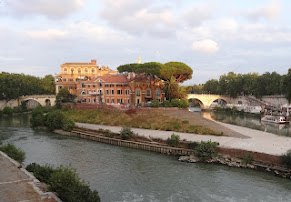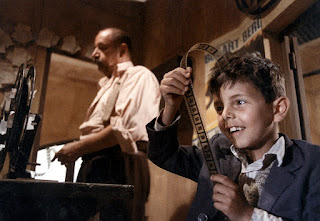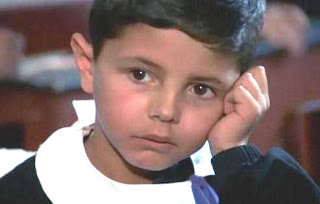Roman lived to be 91 after being freed from Auschwitz
Piero Terracina, the man thought to be the longest survivor among the Jews rounded up for deportation in Rome after Nazi occupation during World War Two, was born on this day in 1928 in the Italian capital..jpg)
After initial reluctance, Terracini told
his harrowing story many times over
Terracina was taken to the notorious Auschwitz death camp in Poland, where almost one million Jewish prisoners were killed, but was spared death and eventually liberated in 1945.
After a long and difficult recovery he returned to Rome and lived to be 91.
For the last almost 30 years of his life, so long as his health allowed, he devoted himself to maintaining awareness of the Holocaust in the hope that such horrors would never be repeated.
Terracina enjoyed a relatively uneventful early childhood. Although many of Rome’s Jews still lived in the area of Rione Sant’Angelo to which they had been originally confined by papal decree in the 16th century, the Jewish community in the early part of the 20th century enjoyed the same status as any other Italians in the city.
Piero was the youngest of four children born to Giovanni Terracina and Lidia Ascoli. His father was a fabric merchant.
Things began to change in the autumn of 1938 when Mussolini’s Fascist dictatorship introduced laws to enforce racial discrimination and segregation in Italian society, aimed mainly at the Jewish population of mainland Italy and the native Africans in the Italian colonies.
.jpg) |
| The entrance to the preserved Auschwitz complex, where Terracina accompanied many visitors |
Terracina’s family had their assets seized. Piero was expelled from his mainstream Italian school and had to continue his education in a school for Jews only. The family’s circumstances were much reduced, but they were able to live in a restricted way.
However, that all changed in 1943. By then, Mussolini had been overthrown by the Fascist Grand Council, placed under house arrest but then rescued by German paratroops and given a safe haven in northern Italy. Rome and the rest of central and northern Italy was occupied by Nazi troops.
The Germans began to round up Jews as they had in the rest of occupied Europe. When Nazi squads entered the Roman ghetto in October 1943, Terracina and his family managed to escape, avoiding the fate of more than 1,000 of their neighbours.
They went into hiding but in April of the following year their whereabouts were revealed to the Germans by an informer and Piero and his family - his parents, a sister and two brothers, an uncle and his grandfather - were all arrested.
.jpg) |
| Terracina, already in his 80s, surrounded by teachers and students on a school visit |
Despite his weight dropping to just 38 kilos (just under six stones), Piero survived and escaped in January 1945. With the area under attack from the advancing Russian army, he and his fellow captives were moved from the Auschwitz camp and were being marched towards another location when the approach of a Russian platoon caused their Nazi guards to flee.
In the face of biting cold, Terracina and his comrades returned to the Auschwitz complex, now abandoned, to shelter until they were found by the Russians. Recovery was long and painful, involving stays in a hospital in Lviv, in the west of Ukraine, and in a sanatorium by the Black Sea. After a year, he returned to Rome.
For the next three and a half decades, Terracina quietly rebuilt his life, completing his education and developing a career in management. He was reluctant to speak about what had happened to him but was eventually persuaded of the importance of telling his story.
Thereafter, he devoted himself to keeping alive the dreadful memory of the hell he and millions of others had endured, speaking to politicians, historians, journalists, members of sports teams and in particular students, whom he often accompanied on trips to Auschwitz. The older he became, the more powerful was his presence on these trips.
Terracina died in Rome in December 2019. His funeral included a procession from the Tempio Maggiore, Rome’s main synagogue, which overlooks the Tiber near the Isola Tiberina, to the Campo Verano memorial cemetery.
Travel tip:
The imposing Tempio Maggiore,
Rome's main synagogue
Rome’s Jewish quarter is beautiful but, given its close proximity to some of the city’s major tourist attractions, often overlooked by visitors. Situated in the Sant’Angelo Rione, east of Campo de’ Fiori and southwest of Piazza Venezia, the former ghetto occupies an area adjoining the Tiber river, next to the bend where the water flows either side of the Isola Tiberina. The centrepiece is the Tempio Maggiore, completed in 1904 and built in an eclectic style with influences of Assyrian-Babylonian, Egyptian and Greco-Roman architecture. There are Roman ruins including the Portico d'Ottavia and Teatro Marcello. The streets nearby are packed with restaurants, many serving traditional Jewish cuisine.
Travel Tip
The Isola Tiberina in Rome is said to be the
smallest inhabited island in the world
The Isola Tiberina, situated in the bend in the Tiber that wraps around the Trastevere district, to which it is connected by the Ponte Cestio, is said to be the smallest inhabited island in the world. A footbridge, the Ponte Fabrico, allows access from the other bank of the river. The island was once the location of an ancient temple to Aesculapius, the Greek god of medicine and healing, and in modern times the Fatebenefratelli Hospital, founded in the 16th century. The 10th century Basilica of St. Bartholomew is also located on the island, which is just 270m (890ft) long and 67m (220ft) wide. During the Nazi occupation, Jews hid in the wards of the hospital after the head of the institution deterred SS officers from searching it by putting out the story that he was struggling to contain an outbreak of a deadly and contagious disease.
Also on this day:
1892: The birth of World War One flying ace Giulio Lega
1905: The Giro di Lombardia cycle race is contested for the first time
1920: The Treaty of Rapallo is signed
1948: The death of composer Umberto Giordano
2011: Silvio Berlusconi resigns as prime minister







.jpg)

.jpg)

.jpg)


.jpg)



.jpg)



.jpeg)

.jpg)

.jpg)

